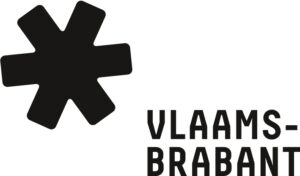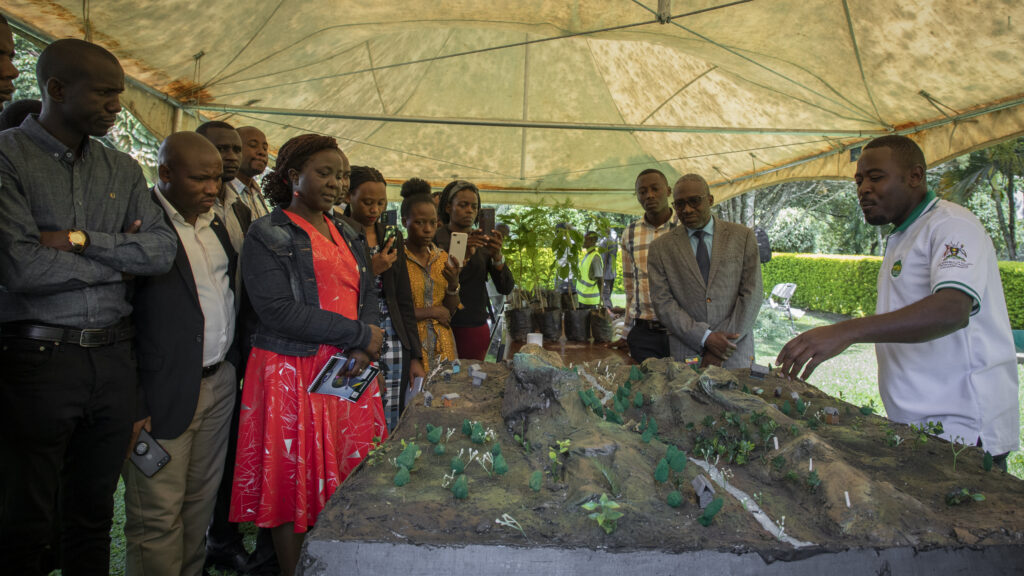Mali/Uganda – A more systemic approach to “water” is needed in these times of climate crisis. And Join For Water is advocating for that, at all levels.
For decades, Integrated Water Resources Management has been the guiding principle for Join For Water’s activities around water access in a river basin. Integrated Water Resources Management takes into account all stakeholders – people and nature – in the zone, both upstream and downstream. The increasing pressure on water resources and the climate crisis – which is above all a water crisis – made Join For Water go one step further. If water resources themselves are under pressure, there is a primary need to protect and conserve them and water ecosystems, without neglecting good local management.
The approach to doing so should be systemic. A systems approach means approaching water holistically from technical, environmental, economic and social dimensions to ensure that benefits are achieved in all these areas. After all, when one of these dimensions collapses, the system itself is compromised.
In specific terms, this means shifting the focus from stand-alone projects, such as concrete dams against flooding, to more systemic solutions that link, for example, river restoration to the (re)creation of wetlands.
New networks
To get as many players at all levels of society on board in this story, awareness raising and knowledge sharing is needed. By sharing knowledge, lessons learned, best practices and (technological) innovations, platforms are created from which new partnerships and networks emerge, eager to translate theory into practice.
To ensure broader political support for this, at regional or national level, Join For Water regularly invites responsible politicians who can hold discussions with people from both the academic world and the private sector. During thematic symposia, Join For Water aims to draw attention to the challenges, discuss solutions, and move all players to action, and to release the necessary funds. Recent examples in Mali and Uganda show that there is indeed progress.
Mali
In Mali, an informative and awareness-raising symposium on “Protecting and Restoring the Ecosystems of the Niger River” took place in June 2023 with the support of the Belgian Embassy. Join For Water mainly wanted to inform and sensitize the attendees on the most urgent actions to protect the ecosystems of and around the Niger.
Representatives from political quarters included the Minister of Environment, Sanitation and Sustainable Development and a representative of the Mayor of the District of Bamako. Speakers from academia highlighted the importance of the Niger in economic – food production! -, social and environmental, talked about the threats to the river – such as climate variability and pollution – and conservation measures.
Not the least important: youth associations also took the floor and pleaded for them to be more involved in plans and actions, after all, it is also about their environment and their future.
At the end of the day, the participants agreed on some important principles:
- the time for sensitization is over, action must be taken, to implement existing official plans;
- the treatment of polluted water and the introduction of the “polluter pays” concept must be high on the agenda;
- adequate resources and personnel must be available to implement the plans;
- existing laws for bank protection must be applied.
These are principles that are not directly in Join For Water’s field of activity and should be promoted at a higher level, but Join For Water is happy to advocate for them.
Uganda
Also in Uganda, Join For Water was one of the initiators of a symposium in late June 2023 on “Protecting and conserving freshwater resources for resilient communities and watersheds in Uganda.” Join For Water has been operating in Uganda for some time in the Mpanga River basin and for about 2 years in the Semliki River basin.
A remarkable number of stakeholders from different domains were present at this symposium, with representatives from regional and national politics, education, the water and environmental sector, the private sector, social organizations, the media*… Especially noticeable was the involvement of the governments: they are genuinely interested, and want to make progress.
The document produced in the course of this Symposium affirms the importance of the Mpanga as a lifeline for more than 3 million people and notes the commitments of those present in black and white, and by zone. Two major lines stood out:
- the leaders of several districts and sub-counties through which the river runs will restore and enforce respect for buffer zones along the river and monitor agricultural activities, in collaboration with development agencies;
- the relevant authorities will raise awareness among communities about the importance of protecting the buffer zones and provide the necessary technical support and guidance.
Join For Water will monitor developments and continue to call on stakeholders to fulfill their commitments. At the same time, with knowledge and creating more self-awareness, Join For Water is empowering residents and communities to claim and have their rights respected themselves.
With financial support from:


